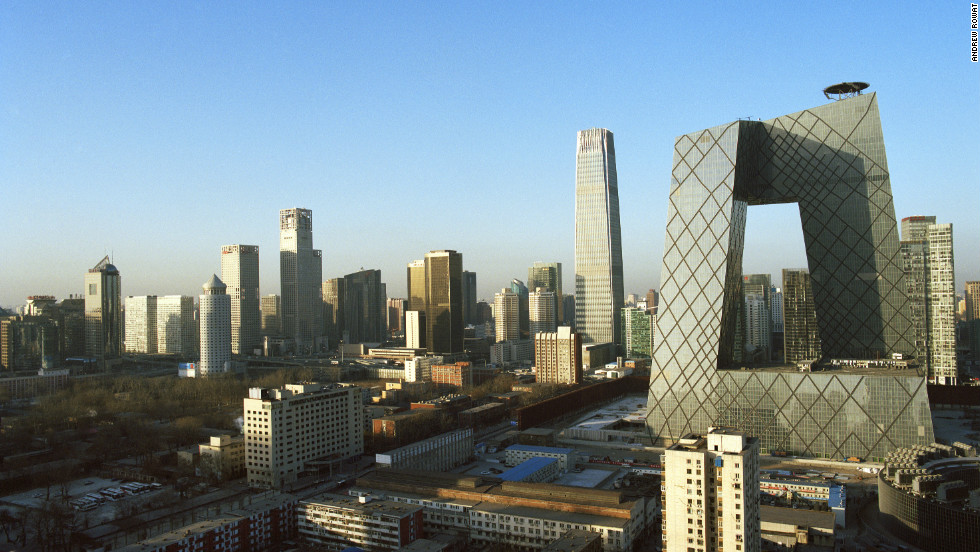Future Chinese Skylines Could Look more uniform
Chinese architecture will now officially be less weird.
A statement from China’s State Council Sunday, says new guidelines on urban planning will forbid the construction of “bizarre” and “odd-shaped” buildings that are devoid of character or cultural heritage.
Instead, the directive calls for buildings that are “economic, green and beautiful.”
China’s economic boom over the past several decades has coincided with a boom in the construction of unique, eye-catching buildings and the country has been dubbed an architect’s playground.
Beijing is home to one of the country’s most iconic buildings, the CCTV headquarters by the Office for Metropolitan Architecture (OMA), co-founded by Dutch architect Rem Koolhaas. It has been nicknamed “big pants” by locals, for its resemblance to trousers.
The golden People’s Daily headquarters has also been made fun of. Midway through construction, a doctored photo of the phallic building superimposed under the CCTV’s “pants” went viral.
Spaceship, teapot
Other eye-catching buildings include an exhibition center in the shape of the tea pot, while one company built its corporate headquarters in the shape of the Starship Enterprise — the legendary spaceship from the Star Trek TV and movie franchise.
The document said “bizarre architecture” that isn’t “economical, functional, aesthetically pleasing or environmentally friendly” would be banned although it didn’t detail how those criteria would be assessed.
“I don’t feel shocked by this news,” says architect Hao Dong, founder of Beijing-based architecture firm Crossboundaries.
“The guidelines pretty much point to a positive direction, particularly in China where there are so many buildings completed to stand out, without considering their function.”
Architectural wonderland hidden in a Chinese forest
More prefabricated structures
The guideline adds that construction techniques that use fewer resources, such as prefabricated buildings, would be encouraged, and that within a decade, 30% of new buildings would be prefabricated.
James Shen, one of the founders of People’s Architecture Office in Beijing, says prefabricated structures could help the country ensure quality and lower housing costs. His design office has constructed IKEA-like prefabricated structures, that help modernize traditional courtyard homes in the city.
“We constantly hear in the news about rising housing costs, environmental waste, pollution and poor labor conditions. More oversight in the building industry and increased efficiency in production could help.”
The directive also called for an end to gated communities. These residential housing estates that strictly control public access have sprung up in China as incomes have risen.
Those already in existence will gradually be opened up to pedestrians and traffic, the document said.
Thomas Heatherwick: Here’s how to stop everything looking the same
Creative with constraints
The new directive appears to be a way of formalizing construction rules that have been in the making for some time.
In October of 2014, President Xi Jinping called for less ostentatious buildings in China’s skylines, according to state media.
And later that year, the vice-mayor of Beijing said the municipal government would be taking a more hands on approach to regulate buildings’ size, style, color, and materials.
“Architects can be creative with constraints, we’ve shown that with our work,” said Shen. “It’s not having enough constraints that creates problems and I think that’s what’s happened in China. Endless building production has happened with little social responsibility.”
CNN called the State Council for clarification on the new guidelines and was referred to the Ministry of Housing and Urban and Rural Development. Calls to that ministry went unanswered.
By MATT RIVERS and STEPHY CHUNG Feb. 22, 2016 on CNN
Read more here









